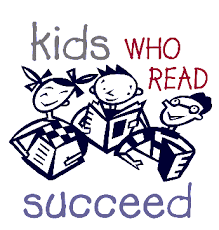 To some, sitting down with a book is a very old fashioned pursuit. Indeed, even in my interview for a place on the English teaching course, the comment was made that "let's be honest, when we get home we are more likely to put the telly on and relax watching a program than open a book". Erm...no actually, not me. Many people today feel reading is boring when there are so many other things to be doing. It is the eternal battle of an English teacher to get students excited about literature rather than the latest film or computer game. We certainly don't appreciate the privilege we have of being able to read and access material so easily. Our libraries are totally undervalued and are therefore facing the big axe in the current economic climate and independent bookshops are battling for survival.
To some, sitting down with a book is a very old fashioned pursuit. Indeed, even in my interview for a place on the English teaching course, the comment was made that "let's be honest, when we get home we are more likely to put the telly on and relax watching a program than open a book". Erm...no actually, not me. Many people today feel reading is boring when there are so many other things to be doing. It is the eternal battle of an English teacher to get students excited about literature rather than the latest film or computer game. We certainly don't appreciate the privilege we have of being able to read and access material so easily. Our libraries are totally undervalued and are therefore facing the big axe in the current economic climate and independent bookshops are battling for survival.

However, I believe reading is incredibly important and can bring a great deal to our lives. I think we'd all be surprised how much we do actually read if we thought about it for a moment. The "Google it" generation may not sit down with a book but they still have to read the information from their Google search to gain the knowledge they have craved. Yet it is a skill that is taken for granted and often dismissed. We forget that there are still many in the world that are denied this life line and can only dream of being able to interpret the strange symbols around them.
 However, I digress. It is my belief that reading literature undoubtedly aids intelligence. Although I mainly read fiction, novels are often based around a topic that I gain an interest in, and inevitably decide to find out more about. I learnt a little about history during my GCSE but reading books has led me to discover far more.
However, I digress. It is my belief that reading literature undoubtedly aids intelligence. Although I mainly read fiction, novels are often based around a topic that I gain an interest in, and inevitably decide to find out more about. I learnt a little about history during my GCSE but reading books has led me to discover far more.
Literature itself has its own history and seeing how this fits together and how authors have influenced each other, expands your general knowledge so much more than watching a quiz show. Reading Harry Potter and discovering the mythical creature "basilisk" which then pops up elsewhere creates a spark of interest to discover more. In fact, the ability to make links, in my opinion at least, encourages a growth in intellectual ability.
Much is made today of "reading" media. It even appears in the National Curriculum for English. The advantage literature has over film though, is that it requires more intelligence to imagine the pictures in your mind rather than have it decided for you and served on a plate. This is one way in which I have had a breakthrough with students. They have on occasions commented that they have preferred the book and when asked why they have realised it was because they were able to imagine it in their own way. I have never thought, before writing this, of questioning the lovely adolescents that I teach on why they would rather hand over control to a producer. Why when they argue over what they wear, eat and do with their loved ones, are they happy to accept someone controlling and stifling their own imaginations? Imagination is crucial. How would we have new inventions or discover so much about the world if people didn't have the ability to imagine other possibilities, or to use one of those horrid phrases "to think outside the box"? See? Reading is even important for business!
I also believe reading is good for the mind and stress. Sometimes life can just seem like too much to bare. To be able to escape into another world and leave your problems behind, to give yourself some head space, is magical and exactly what can be achieved with a good book. However, this is perhaps more about what I gain personally from reading and therefore belongs in a separate blog post.
 The final point I want to make is arguably the most important. Much is said of the standards of literacy today. Many people forget that there is a much higher percentage of people able to read today than in the past. Yes, there are still those that can't which is unacceptable. However, from my limited experience in education there is clearly a problem with the relatively simple task of writing sentences. Many students can not recognise that their sentence simply doesn't make sense or that they should be writing "They were" instead of "They was". The government's answer has been to include learning on sentence structure and such like in the National Curriculum. My son, still in Primary, can tell me all about the differences between simple, compound and complex sentences and terms such as embedded and non-finite clauses. Now I am from an era where this was not taught and have since had to learn it as a teacher.
The final point I want to make is arguably the most important. Much is said of the standards of literacy today. Many people forget that there is a much higher percentage of people able to read today than in the past. Yes, there are still those that can't which is unacceptable. However, from my limited experience in education there is clearly a problem with the relatively simple task of writing sentences. Many students can not recognise that their sentence simply doesn't make sense or that they should be writing "They were" instead of "They was". The government's answer has been to include learning on sentence structure and such like in the National Curriculum. My son, still in Primary, can tell me all about the differences between simple, compound and complex sentences and terms such as embedded and non-finite clauses. Now I am from an era where this was not taught and have since had to learn it as a teacher.
 So how come I don't have literacy problems? How come despite all this explicit teaching, there are more and more students failing to write grammatically correctly? READING!! If you grow up being read stories and having reading time before you go to bed and then continue reading throughout your life, you are continually exposed to grammatically correct sentences. You may not be able to understand or explain why a sentence is written correctly or not, but you are able to write properly and recognise when something's not right. With more time spent in front of a TV or computer screen (my own children included), the advent of text talk, informal emails etc., children are inevitably less exposed to the written word and so should it really be any wonder that there are lower levels of written literacy?
So how come I don't have literacy problems? How come despite all this explicit teaching, there are more and more students failing to write grammatically correctly? READING!! If you grow up being read stories and having reading time before you go to bed and then continue reading throughout your life, you are continually exposed to grammatically correct sentences. You may not be able to understand or explain why a sentence is written correctly or not, but you are able to write properly and recognise when something's not right. With more time spent in front of a TV or computer screen (my own children included), the advent of text talk, informal emails etc., children are inevitably less exposed to the written word and so should it really be any wonder that there are lower levels of written literacy?
 Is it too radical to suggest that less time should be spent on teaching specific rules and more time given to the enjoyment of literature? I am of course biased and these are merely my own thoughts and musings but I really feel at the very least that the loss of the traditional bedtime story or reading is a loss for society. As a child, this is a special time to spend with a loved one, curled up relaxing before sleep listening to tales. It is a moment of bonding as well as an important part of learning to read. As a teenager or adult it is that time to slow down, come down a gear or two and relax before sleep. How often to you wake in the morning feeling exhausted, having been churning over your problems and to do list in the night? Time out is essential. Reading is essential.
Is it too radical to suggest that less time should be spent on teaching specific rules and more time given to the enjoyment of literature? I am of course biased and these are merely my own thoughts and musings but I really feel at the very least that the loss of the traditional bedtime story or reading is a loss for society. As a child, this is a special time to spend with a loved one, curled up relaxing before sleep listening to tales. It is a moment of bonding as well as an important part of learning to read. As a teenager or adult it is that time to slow down, come down a gear or two and relax before sleep. How often to you wake in the morning feeling exhausted, having been churning over your problems and to do list in the night? Time out is essential. Reading is essential.
I totally agree, 5 minutes of TV and I start feeling withdrawal symptoms, I have to remind my family that watching TV together is not really companionship, doing things is :)
ReplyDeleteReading helps so many things, writing, spelling, grammar, knowledge, conversation even!
Even if I am really tired, I must read before sleeping, it separates the days but provides some continuity between them too.
Definitely. Reading is one of the few things that stops my brain when it's in over ride!
ReplyDeleteLoved reading this, I so agree reading, the ability to read is so important. I have always loved reading, nothing like a good book.
ReplyDelete